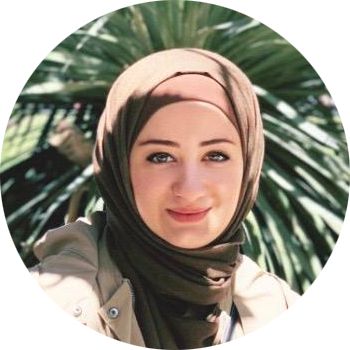
Gender Role Attitudes of Traditional Arab Women and Haredi Jewish Women in Israel: A Comparison
Gilan Miller-Gertz & Nour Abu-Ghosh
“Blossoming of Magnolia Flowers in Spring Time” by Kaboompics.com on Pexels (CCO)
In Israeli society, Haredim (ultra-Orthodox Jews) and traditional Arabs live within close proximity to one another. While these religiously, ethnically, and culturally differentiated groups do not typically interact with each other, women from both groups appear to share certain aspects of their lifestyles. Both live in relatively closed societies; both have relatively limited contact with men and the world outside their own communities; and both are restricted by a range of religious and cultural rules and customs they are expected to follow, such as marrying young and having many children. Women from both groups also dress in similar fashion, covering up most of their bodies for modesty reasons, and both typically have access to only a relatively narrow range of educational and work opportunities, such as teaching.
Haredim, are a very conservative subset of the Jewish Israeli population, follow a strictly traditionalist interpretation of Jewish law, and strive to prevent outside influences from entering into and influencing their communities. For example, while they use technology, they limit their exposure to the internet, and smartphone use is forbidden or strongly discouraged. They likewise maintain traditional modes of dress for both men and women, eschew secular education and literature, and embrace many traditional, differentiated roles for men and women in public and private life. With a few adjustments to modern day culture, they generally seek to maintain the religious and cultural lifestyles of their forebears.
Traditional Arab women represent a majority portion of the female Arab population in Israel. They staunchly follow the recognized and accepted social mores of their community. They believe that engaging in any behavior that is incongruent with their social system would result in their being considered “shameful” by others. They likewise adhere to ancient religious and cultural norms that organize life within their communities, even if those laws can be restrictive for women in a variety of ways.
While we expected these women to be weak in the sense of their being controlled by their societies, they turned out to see themselves as strong women who are leading their families and building their societies.
In considering the relationship between Haredi Jewish and traditional Arab women in Israel, we hypothesized that women in both groups would have similar ideas about women’s roles in the home. Also, given their physical proximity to one another in the relatively small State of Israel, their often similar religious and ethical values, and their living in relatively closed and conservative communities, we supposed that women in both groups would have comparable attitudes about personal priorities and lifestyle. We thought that members of both groups would view women’s primary role as caring for their homes and the needs of their families, consistent with the way families have traditionally been organized.
To test these suppositions, we interviewed Haredi Jewish Israeli women and traditional Arab Israeli women about their attitudes toward gender roles in the home. We expected to find both groups embracing a strong gender divide in terms of men’s and women’s roles. Surprisingly, our findings revealed that the two groups are similar, but not in their devotion to traditional gender stereotypes. Instead, they displayed a similar sense of women’s empowerment within the boundaries of their societies and religions.
We interviewed five Haredi and five traditional Arab women. The Israeli Haredi community includes a number of different groups representing varied religious and cultural commitments and affiliations. Our Haredi interviewees were all non-Hasidic, Ashkenazi women. The interviewees ranged in age: one was in her twenties, two were in their thirties, one was in her forties, and one was in her seventies. We also interviewed five traditional Arab-Israeli women. These subjects likewise represented a range of ages: one in her seventies, one in her fifties, one in her thirties, and two in their twenties. Each subject was interviewed in a semi-structured manner, allowing the women space to speak about themselves and their philosophies.

In the interviews, all of the traditional Arab women described themselves in terms that are considered positive in the modern world, such as “strong,” “successful,” and “leader.” They also described personal choice as a chief factor in their lifestyles, and they believed they had partnerships with their husbands. For example, the Arab interviewee in her seventies said that she has devoted her life to caring for her husband and raising her children, not because social pressure forced her to do so, but because she chose that life and loves that role. Similarly, the woman in her fifties expressed that she appreciates her work and her home life, and that she views her role in life as a leader, worker, mother, and wife. A woman in her twenties also asserted that she employs personal choice to work inside and outside of her home. Although her husband does not help in the home, she does not feel resentment toward him. Another woman in her twenties expressed her devotion to the rules of her traditionalist society, saying they organize the lives of the people. She explained that although the rules can be frustrating and choking, they are needed. In her eyes, all Arabs living in Israel are traditional, but to varying degrees.
The Haredi women also described personal choice as the driver for their lifestyle choices. Although the interviewees are of disparate ages, they all expressed the belief that marriage is a partnership in which both spouses cooperate to work toward the same goal: to have the husband study the Torah full-time, or nearly full-time. In order for this partnership to succeed, they have to work together in childcare, household chores, and errands. When a task is at hand, they assign it to the member of the couple who has the time and who is more proficient at that task. In addition, because Haredi husbands generally strive to study Torah full-time or nearly full-time, most Haredi women have to work outside their homes–a departure from the traditional gender roles observed in other respects within Haredi lifestyles. Interestingly, the Haredi interviewees all said that the husband is the head of the household and is in charge of supporting the household and making major decisions, even though it is the women who are typically the primary breadwinners. In their perception, women’s paid work allows households to run the way they should, and as long as individual women can manage to work and support their husbands’ Torah study, they should continue to do so.

The Haredi women use agency to pursue their ideal of Torah learning as their household goal. As the woman in her seventies explained, the women see their lifestyles as a mission. They respect their husbands’ Torah learning, and they consider their husbands’ contributions to the household as equal to their own. Each of the Haredi interviewees would want the same lifestyle for their daughters because of their convictions that their way of life is ideal. Somewhat incongruously, they also all believe their lifestyles are traditional, despite the apparent role reversal of women working instead of men.
The results of these interviews were surprising in several respects. Some of our assumptions about the attitudes and lifestyles of Haredi and traditional Arab women were revealed to be unfounded. While we expected these women to be weak in the sense of their being controlled by their societies, they turned out to see themselves as strong women who are leading their families and building their societies. We had expected women from both Haredi and traditional Arab societies to be similar in their ideas of women’s roles, and we were correct, but not in the manner we had assumed. We discovered that both Haredi and traditional Arab women see themselves as having partnerships with their husbands, and more importantly, both groups of women displayed agency in believing that they are making the choice to pursue their respective life-missions. ♦

Gilan Miller-Gertz is a Licensed Clinical Social Worker (LCSW) who has a B.A. in Psychology from Barnard College and a MSW from Yeshiva University. She is currently studying toward a second master’s degree in International Development at the Glocal program at Hebrew University in Jerusalem.

Nour Abu Ghosh is an Academic Advisor at the Hebrew University for the preparatory year students, who has a B.A degree in Middle Eastern Studies from the Hebrew University. She’s currently a master’s degree student in the Glocal International Development program at Hebrew University, Jerusalem.
Recommended Citation
Miller-Gertz, Gilan and Nour Abu-Ghosh. “Gender Role Attitudes of Traditional Arab Women and Haredi Jewish Women in Israel: A Comparison.” Canopy Forum, April 13, 2020. https://canopyforum.org/2020/04/13/gender-role-attitudes-of-traditional-arab-women-and-haredi-jewish-women-in-israel-a-comparison/

